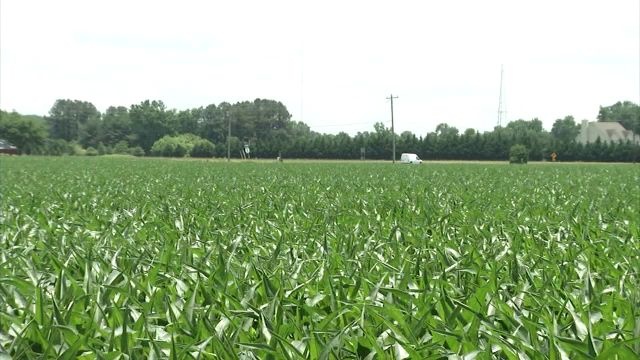Local experts weigh in on damaged wheat study

New research from Kansas State University found that a one-degree increase in heat in the spring would decrease winter wheat yields by about 7 percent.
Local experts on the Eastern Shore, such as Jim Lewis of the University Of Maryland Extension, Caroline County, say a warmer winter is not necessarily a bad thing.
“Warmer in the winter time, I can’t really think of too many detrimental affects.” Says Lewis.
Lewis explains, warmer winters could speed up the harvesting process.
“If it gets warmer in the winter time, that crop would mature and probably be harvested sooner which would then benefit farmers because they could plant after it sooner.” Explains Lewis.
This view is in stark contrast to the Kansas State study, which suggested heat can damage wheat more than freezing temperatures.
Lewis agrees with researchers that irrigation is important.
Winter wheat on the Eastern Shore is a cover crop, used to manage the soil, in preparation for the spring planting season which is primarily corn.
This new study is not just about the effect of increased winter temperatures on wheat. The field experiments around the world concluded that effects of climate change and its higher temperatures will be more severe than expected, and is happening sooner than anticipated.
Lewis says in terms of corn crops, extreme temperatures aren’t a huge concern unless that’s coupled with drought.
“Corn produces pollen on the top of the plant where the tassle is, it falls down to the ear. The ear has silks, or hairs, coming out of the ear corn.” Says Lewis. “If it’s really hot and dry, the pollen can dry up before it fertilizes the corn.”
To prepare, long-time farmers like Geno Lowe say it’s important to not plant every crop at the same time. That way if there are any damages, it will not be a total loss.
“One of the biggest things you can do is kind spread out your window so you don’t have it all pollinate at one time.” Says Lowe. “You can spread that out and maybe you won’t get a hot spell with all of it.”
This year, the Eastern Shore saw a cool start to spring and farmers tell 47 ABC things are looking on track right now.
The National Weather Service’s climate prediction center expects temperatures and precipitation during the summer months to be normal, meaning no expected extreme dips or spikes.

